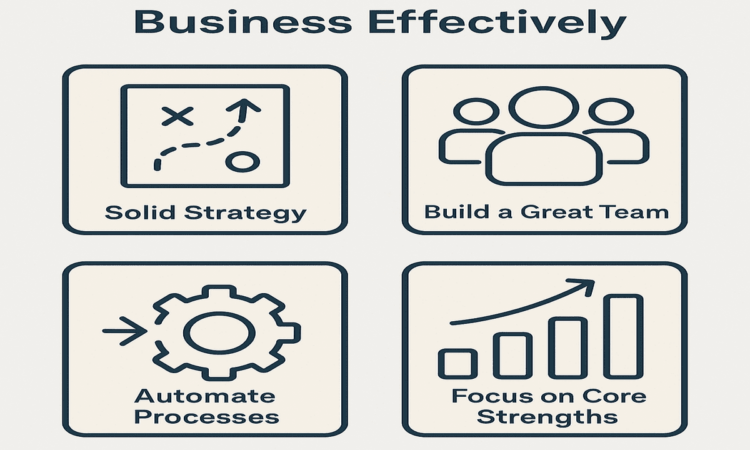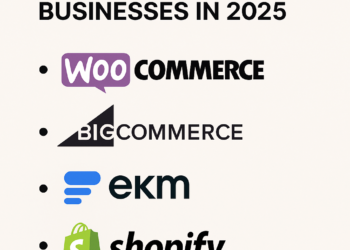Growing a business can be exciting, terrifying, and overwhelming all at once. One minute you’re celebrating small wins, and the next you’re thinking, “How do I actually take this to the next level?” If you’ve been asking yourself how to scale a business effectively, you’re in the right place.
Scaling isn’t just about getting bigger. It’s about growing smarter. It’s about building a solid foundation that won’t collapse the moment demand spikes or you expand into new markets. So, let’s dive into the practical side of things and talk about what really works.
First Things First: What Does Scaling Actually Mean?
People often confuse growth with scaling. While both mean your business is moving forward, they’re not exactly the same. Business growth is usually about increasing revenue. Maybe by getting more customers or selling more products. Scaling up, on the other hand, is about increasing revenue without a massive increase in costs.
Sounds great, right? But how do you actually pull it off?
1. Get Your House in Order
Before anything else, look at your current setup. Is your business ready to handle more work, more customers, and more complexity?
Ask yourself:
- Are your systems running smoothly?
- Can your team take on more work without burning out?
- Are you financially ready for the next step?
Scaling up without structure is like building a second floor on a wobbly shed. It won’t hold.
Take the time to streamline processes. Automate where you can. Invest in tools that make life easier. Whether it’s project management software, CRM systems, or accounting tools.
2. Build a Strong Team
No one scales alone. If you want real, long-term business growth, you need a team you can count on.
This doesn’t mean hiring people left, right, and centre. It means being smart about it. Look for individuals who not only have the skills but also share your vision. A good hire will pay for themselves many times over. Not just in productivity, but in ideas, energy, and leadership.
And don’t forget to train and develop your existing staff. They already know your business. Help them grow alongside it.
3. Focus on What Works—Then Do It Better
What’s already bringing in results? Double down on that.
Got a product flying off the shelves? Make it better. Selling well through Instagram? Invest more into your social strategy.
Scaling doesn’t always mean adding more products or entering new markets right away. Sometimes it means refining your current offer and delivering it at scale.
This is where expansion strategies come into play. You could:
- Open in a new location (if you’re local)
- Expand into online sales
- Target a new type of customer
- Add complementary services or upsells
Whatever your strategy, make sure it aligns with your strengths and brand values.
4. Keep an Eye on Cash Flow
One of the biggest mistakes small businesses make when scaling is running out of money. Sounds basic, but it happens. Fast growth often means more spending. On staff, stock, equipment, or marketing. If you’re not careful, it’ll burn a hole in your pocket.
Plan your finances. Build a cash buffer. Forecast your revenue and costs for the next 6–12 months. Be conservative. It’s better to grow steadily than to boom and bust.
5. Listen to Your Customers (Seriously)
Your customers are your best advisors. If you want to scale a business effectively, you need to stay close to the people who are buying from you. Talk to them. Ask what they like, what’s missing, and what could be better. Use reviews, surveys, and social media to keep your finger on the pulse.
Your next big product idea? It might already be sitting in a customer’s inbox waiting to be heard.
6. Don’t Be Afraid of Tech
Technology is your best mate when scaling up. From automating emails to managing customer relationships, the right tools save you time and keep things consistent.
Look into:
- Marketing automation platforms
- Cloud accounting tools (like Xero or QuickBooks UK)
- Inventory management systems
- Chatbots and AI assistants for customer service
It’s all about working smarter, not harder.
Final Thoughts: Keep It Lean, Keep It Focused
Scaling your business doesn’t mean doing everything at once. In fact, trying to do too much too soon is one of the fastest ways to lose momentum. Start with solid foundations. Focus on what you do best. Build a reliable team. Keep your finances tight and transparent. And never stop learning.
If you’re figuring out how to get funding for a startup in the UK, remember—investors look for clarity, consistency, and potential. A smart scaling strategy can make all the difference when pitching your business.
So, if you’re wondering how to scale a business effectively, the answer is simple—but not easy: plan smart, grow steadily, and stay true to your mission. You’ve got this.

























